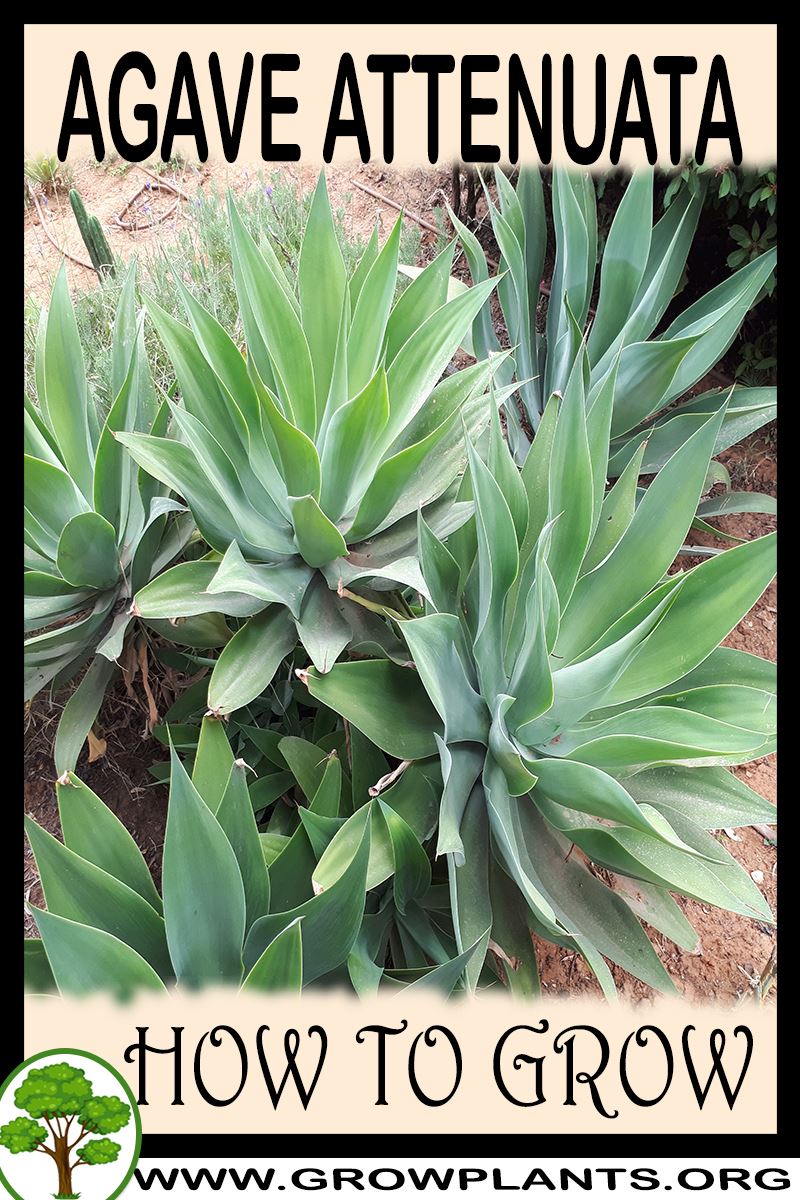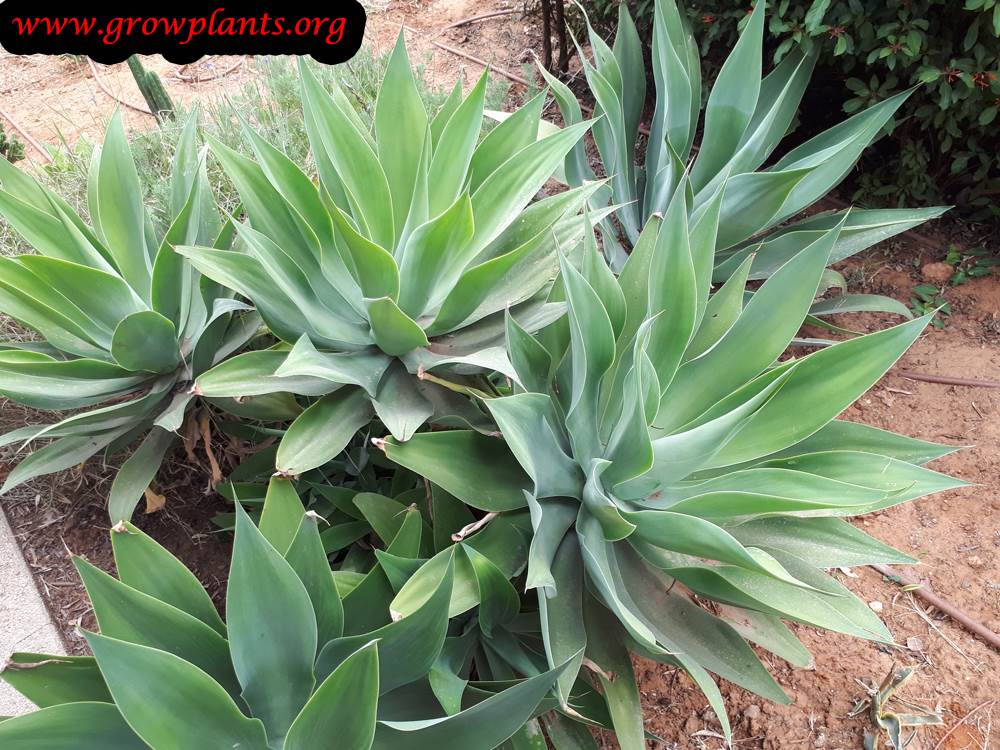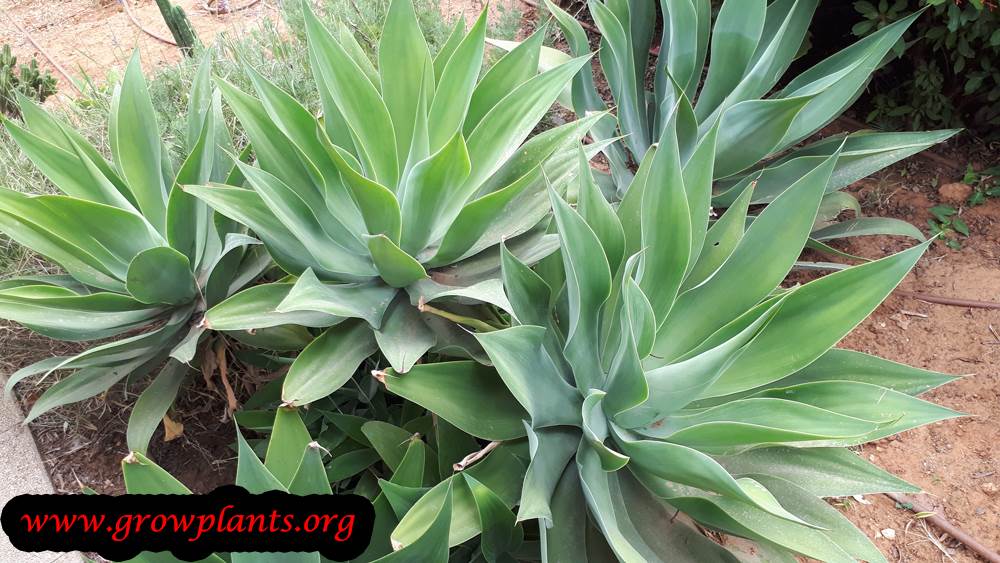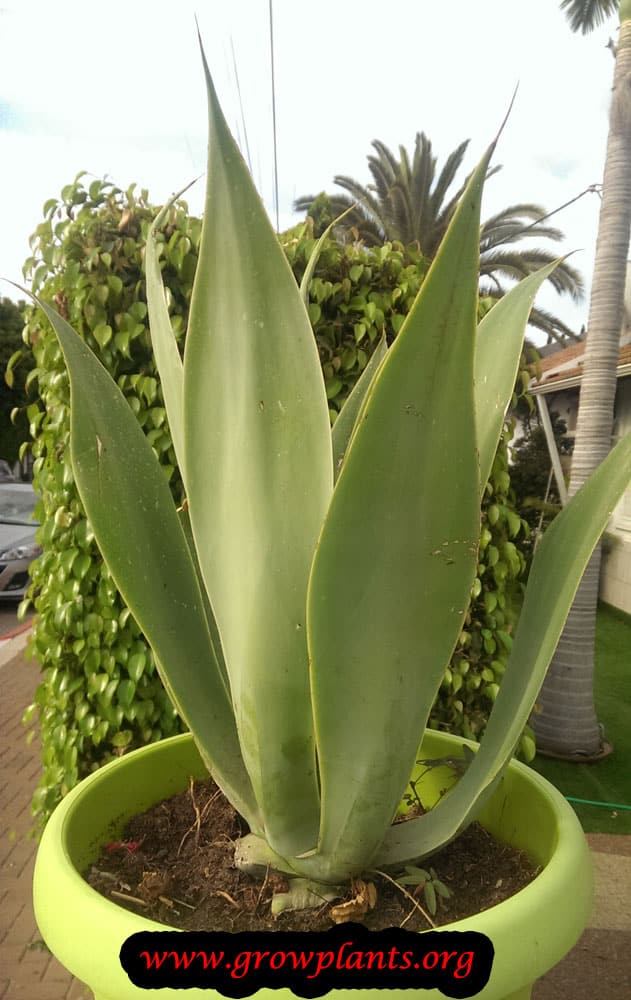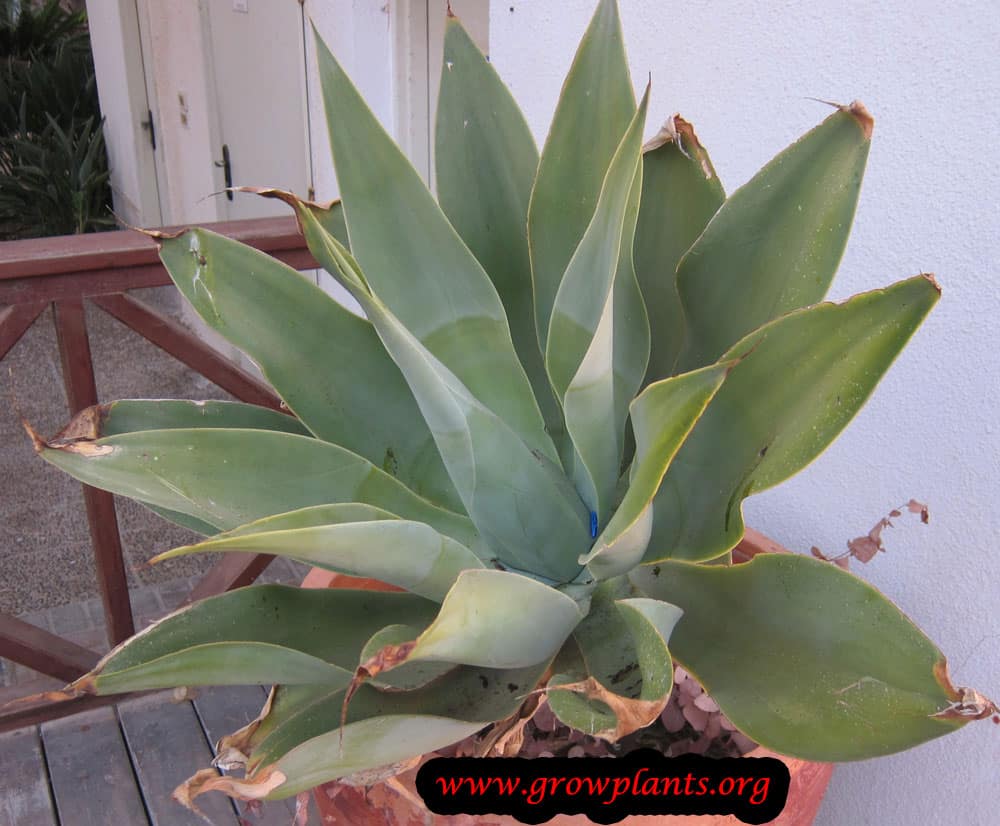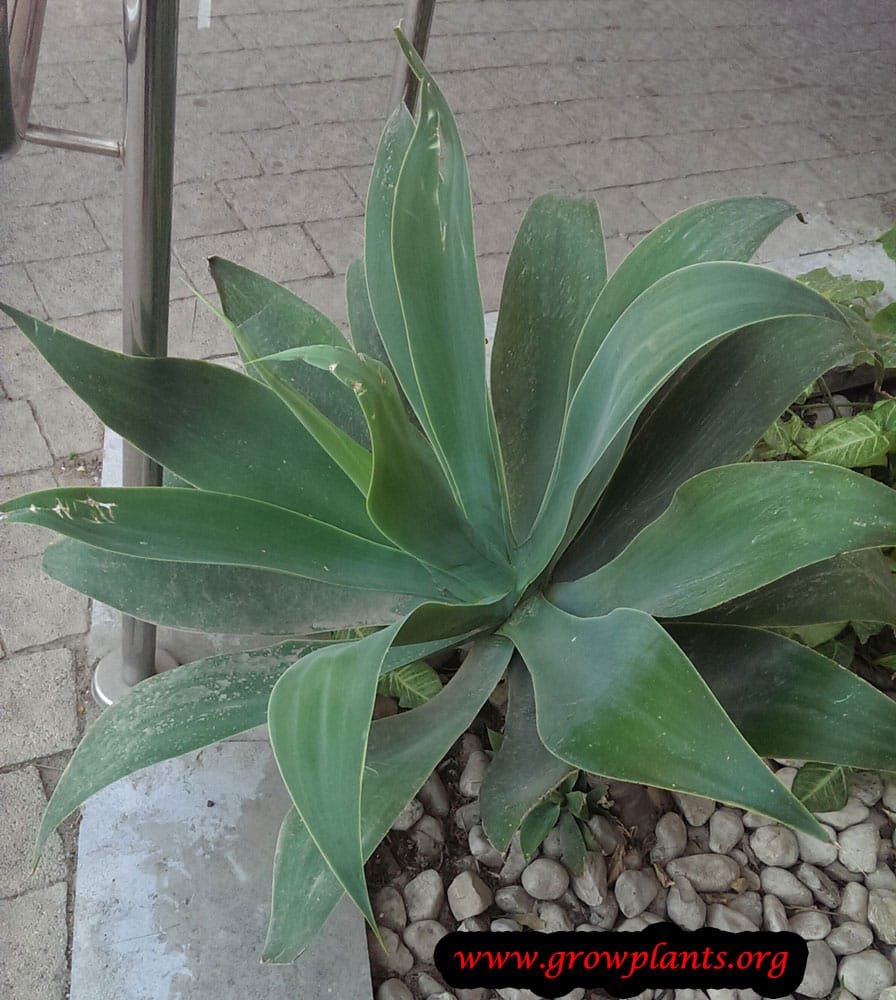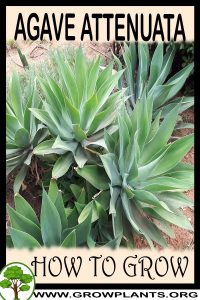
Agave attenuata grow and care – succulent leaf plant of the genus Agave also known as Lion’s tail or Foxtail agave, Agave attenuata perennial evergreen plant, the plant dies after the bloom and the young plant grow instead and also used as ornamental and medical plant also drought tolerant, can grow in desert, subtropical, mediterranean, tropic or temperate climate and growing in hardiness zone 10+, with the right care overwinter can grow in hardiness zone 9.
Agave attenuata leaves and flower
Leaves color green and can be variegata green with yellow, the leaves are fleshy, and leaves grow in rosettes structure, the leaf in a spear shape.
Flower color is yellow, the flowers grow on stalk (bloom spike), the stalk with shape of foxtail
Agave attenuata for sale – Seeds or Plants to Buy
No products found.
How to grow Agave attenuata growing condition and care:
Well-drained soil, better sandy soil, better frost free
How to care:
Put fertilizer once a year, when the plant young in cold winter better to add mulch
What is the best way to start growing?
Plant / Seed (explanation bellow)/ Vegetative reproduction
How to propagate agave attenuate:
Propagation by cutting leaf, cut the leaves or cut in the base of the leaf with hand not anything sharp and wait at least 24 hours or if not cut in the base or it is stem need wait few days until and care the tissue will hill, after this put it in well-drained soil, and water it every few days to two weeks let in dry but not fully dry, after few weeks to month it start to grow root, cutting better to start in the late spring to early summer but always can do it indoor
Is it necessary to graft or use vegetative reproduction?
No but in order to get the variegata cultivar should start by daughter plant or cutting
Difficulties or problems when growing:
Sharp leaves
Recommended planting season?
Spring in cold hardiness zone 9, spring to summer in hardiness zone 10a, spring to autumn in hardiness zone 10b, all year in hardiness zone 11+
How to plant:
Planting in location with good drainage, the plant doesn’t like and might die if will sit in puddle so in rainy location better to grow above the ground level and use raising bad
Pests and diseases:
Agave snout weevil, snails, slugs
Pruning season:
All year, for beauty when the leaf become old and going to die and for the health of the plant (unless the plant is infected) after the leaf dies it bring back all the nutrient back from the leaf the plant.
How to prune:
Trim dead leaves, dead mother plants and blooming stalk
Size of the plant:
0.3-0.9m, 1-3 feet leaves, and the stalk 1.5-2m (5-6 feet)
Growth speed in optimal condition:
Slow growing, when the plant grow in colder area than the original place the leaves will grow little bit slowly and bloom will take few more years
Water requirement:
Small amount of water, let it dry between watering and better not to over water
Light conditions in optimal condition for growing:
Full Sun / Half Shade
Is it possible to grow indoor as houseplant?
No
Growing is also possible in a planter /flowerpot / containers:
Yes, when growing in containers need to choose container that 30-50% bigger than the roots ball, when arrive to full capacity transplant to bigger container, if it’s fully grown also need to be bigger in order to have place for the daughter plants, be aware that the blooming stem might be heavy and too much and need to consider to put heavy things in the base of the container, also the drainage of the soil it’s important, make enough holes, adter after few years drainage of the soil will function less good and better to change the soil to new soil.
Transplanting mature plant or daughter plants:
Better to use water to wash the soil out of the roots, take part of the soil and pull the plant with the big amount of roots, need to put water after transplant every day small amount and do not overwater.
Blooming information
Bloom season:
Summer
General information about the flower:
Yellow flowers grow on stalk
Pollination is done by:
Moths, bats, sunbird, hummingbird
Cultivars
Agave attenuata variegata – green with yellow or white stripes can be that the leaf mostly white or yellow
How to grow Agave attenuata from seeds
Sowing requirement:
Sow in sunny location or with light, well ventilate and good drainage soil, put water to keep the soil moist but lightly moist and don’t let it fully dry
Saving seeds and care until sowing:
Location with light and better sandy or well ventilated soil and also good drainage is important
Saving seeds and care until sowing:
Dry and dark place in room temperature
Sowing season:
Better sowing in spring to summer (possible in autumn and winter in hot climate)
Planting spacing:
20-30cm, (8-12 inches)
Depth of Sowing:
0.5cm, (0.25inches)
Conditions for seeds germinate:
Slightly moist soil but do not over water and don’t let it dry
Watering requires for Seeds:
Small amount of water / Average amount of water
Germination time:
2-4 weeks
Condition of seedling:
Light with moist soil and well ventilated soil
Scientific name:
Agave attenuate
Alternative names: Foxtail agave, lion’s tail, Swan’s neck, Foxtail plant, Agave cactus, Century plant
Categories
| Blooming Seasons |
|
|---|---|
| Flower colors |
|
| Climate |
|
| Leaf color |
|
| Ornamental parts |
|
| Plant growing speed |
|
| Plant life-form |
|
| Plant Uses |
|
| Planting Season |
|
| Plants sun exposure |
|
| Watering plants |
|
| Hardiness zone |
|

